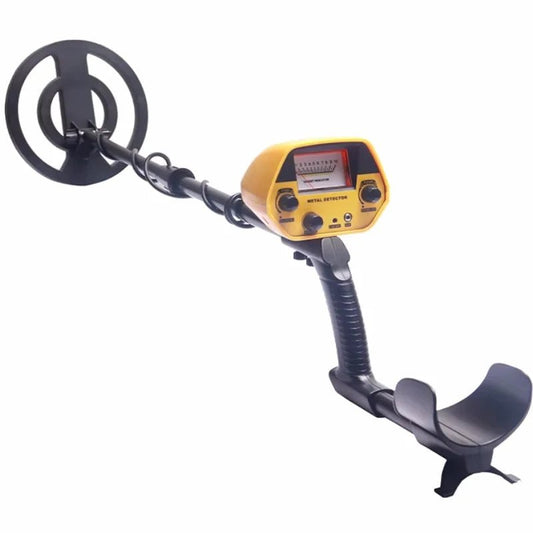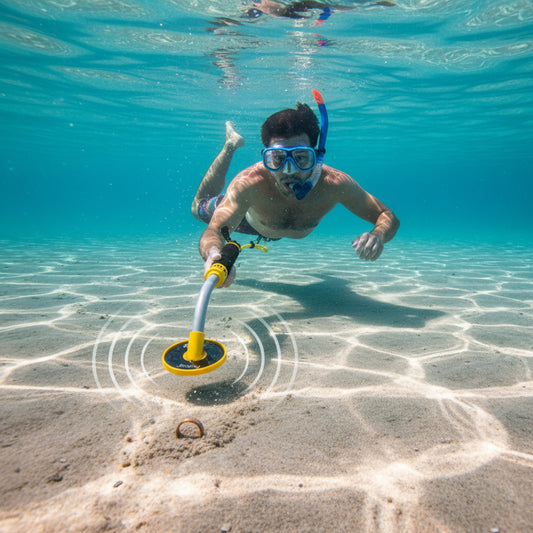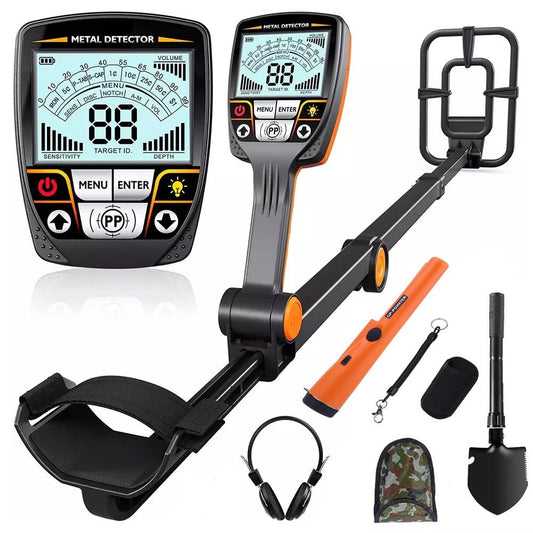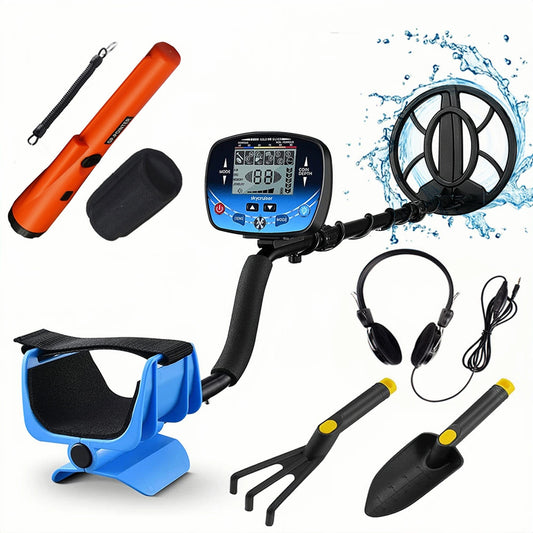
Metal Detecting in Italy: Permits, Regions, and Top Spots for Finds
Share
Italy’s rich history, ancient ruins, and scenic landscapes make it an alluring destination for metal detecting enthusiasts.
However, Italy’s strict heritage laws and regional restrictions mean every detectorist must be well-informed and prepared.
This guide covers the legal landscape, permit process, best regions, and top places to hunt for treasures in Italy.
Metal Detecting Laws and Permits in Italy

Metal detecting is legal in Italy, but it is highly regulated to protect the country’s archaeological and cultural heritage. Regulations vary by region, and some areas enforce complete bans on detecting activities.
Key Legal Points
-
Permits Required: While there is no universal national permit, many regions require written authorization or special permits, especially for searching for military relics or in sensitive areas.
-
Landowner Permission: Always obtain explicit permission before detecting on private land.
-
Regional Bans: Detecting is completely banned in regions such as Sicily, Calabria, and Valle d’Aosta.
-
Protected Areas: Archaeological sites, national parks, and heritage zones are strictly off-limits. Violating these restrictions can result in severe penalties, including fines and equipment confiscation.
-
Reporting Finds: All significant finds, especially those over 50 years old, must be reported to the local Superintendence of Archaeological Heritage within 24 hours.
-
Fines and Penalties: Unauthorized detecting or failure to report finds can lead to administrative fines starting at several hundred euros, with criminal charges possible for serious violations.
How to Get a Permit
-
Local Authorization: Some regions (e.g., Veneto) require a “patentino” for searching military relics, valid for five years and costing around €200.
-
Public Land: Apply to the local municipality or prefecture, providing identification, equipment details, and a map of your intended search area.
-
Private Land: Obtain written permission from the landowner. Agree in advance on how finds will be handled.
-
Beaches: Some municipalities require a permit for beach detecting—ask at the local town hall or beach authority.
Learn all about how to get a metal detecting permit.
Best Regions for Metal Detecting in Italy

Italy’s diverse terrain offers a wealth of opportunities for detectorists—if you follow the rules and avoid restricted areas.
Regions with Opportunities
-
Tuscany: Known for rolling hills, ancient Roman roads, and medieval villages. Some rural areas allow detecting with proper permission, but avoid protected archaeological zones.
-
Piedmont and Lombardy: The Po Valley and Alpine rivers like Ticino and Sesia are famous for gold panning and occasional relics.
-
Emilia-Romagna: The Tuscan-Emilian Apennines have a history of Roman and medieval gold mining, with legal detecting possible on private land.
-
Sardinia: Offers both scenic beaches and historic mining areas, such as Monte Arci and Villasalto, with permission.
-
Veneto: Some areas allow detecting for World War I relics with a special permit.
-
Latina (Lazio): Hosts major events like DetectItalia, attracting detectorists from across the country and abroad.
Regions with Complete Bans
-
Sicily, Calabria, Valle d’Aosta, Lazio (some areas), Tuscany (some areas): Metal detecting is banned or severely restricted.
Top Spots for Metal Detecting Finds
| Location/Region | Type of Finds | Notes |
|---|---|---|
| Spiaggia dei Conigli (Sicily) | Modern jewelry, coins | Check local rules—Sicily has strict bans. |
| Tropea Beach (Calabria) | Modern coins, jewelry | High tourist traffic; region has restrictions. |
| Positano & Lignano Beaches | Modern valuables | Arrive early to avoid crowds; municipal rules may apply. |
| Tuscan Fields | Roman/medieval relics, coins | Private land only, with permission; avoid protected areas. |
| Piedmont Alpine Rivers | Gold flakes, nuggets | Ticino and Sesia rivers; gold panning with a pan and shovel. |
| Monte Arci (Sardinia) | Gold, mining relics | Permission required; avoid archaeological zones. |
| Piana delle Orme (Latina) | Event-based finds | DetectItalia rally location; organized, legal detecting. |
Essential Equipment and Tips

-
Detector Choice: Use multi-frequency detectors (e.g., Minelab Equinox 800) for mineralized soils and advanced ground balance features.
-
Accessories: Bring pinpointers, protective gloves, and waterproof coils for beach and river hunts.
-
Safety: Check tide schedules, wear sun protection, and be aware of your surroundings, especially in remote or secluded areas.
-
Timing: Spring is optimal for detecting—wet ground improves conductivity and visibility is better before vegetation grows.
-
Community: Join local clubs or attend events like DetectItalia for support, knowledge, and legal guidance.
Responsible Detecting and Community
-
Federazione Italiana Metal Detecting (FIMD): Italy’s main detecting federation, offering resources, advocacy, and community events.
-
DetectItalia: The country’s premier metal detecting event, held annually, promotes responsible detecting and unites enthusiasts nationwide.
-
Reporting and Ethics: Always report significant finds, fill your holes, remove trash, and respect the landscape and local communities.
Conclusion
Metal detecting in Italy is a rewarding but highly regulated hobby. With the right permits, landowner permission, and respect for local laws, you can explore some of Europe’s richest historical landscapes and beautiful beaches. Focus on legal regions, join the vibrant Italian detecting community, and enjoy the thrill of discovery—while helping to preserve Italy’s cultural heritage for generations to come.




